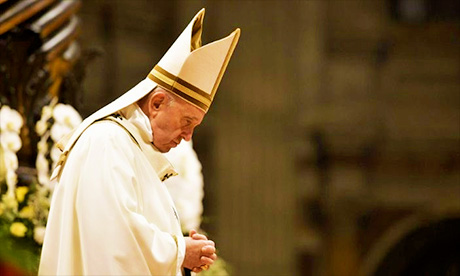At an April 8-10 online symposium with religious representatives from around the world, Pope Francis expressed his hope that religions, together, can fight the profound evil of child abuse.
After decades of child sexual abuse scandals the Church is ready to share its successes — and failures — with other religious and lay institutions.
Francis’ message was delivered by Michael Hoffman, a clergy child sexual abuse survivor and activist.
Representatives of several world religions, including Catholic, came together recently for an online symposium on preventing and healing child sexual abuse.
It is an evil that can be overcome, they agreed.
The April 8-10 “Faith and Flourishing: Strategies for Preventing and Healing Child Sexual Abuse,” symposium was organized by the Human Flourishing Program at Harvard University.
Seventy-three 73 speakers from different religious, cultural and professional backgrounds last weekend to address the phenomenon that has touched nearly every major religious group in the world.
One in 4 girls and 1 in 13 boys experience sexual abuse at some point during childhood, according to reports by the Centers for Disease Control and Prevention.
Most cases take place in the household at the hands of family members.
The symposium also addressed this and the impact of pedophilia in many other sections of society: from schools, to sports, to scouts and religious institutions.
“By listening to those who have been hurt so grievously, we begin to understand much better why it’s important for faith communities to step up and acknowledge the harm that has been done in their midst,” said Hans Zollner SJ at the symposium.
Zollner is the president of the Center for Child Protection at the Gregorian University in Rome.
“Religions can come together in the fight against sexual abuse of men, women and children,” he said.
Zollner is highly respected for his role in addressing the sexual abuse scandals that have crippled the Catholic Church. Among his efforts he helped organise a 2017 conference on “Child Dignity in the Digital World,”. This helped shift the perception of the Catholic Church and sexual abuse from being part of the problem to being instrumental to the solution.
Zollner said that “faith communities can in fact have a major impact on the greater community they serve.”
Religious communities need to come together and share expertise and experiences, he said.
“This pandemic has shown that there are challenges that are much bigger than any one person, one religion, one country, one profession.”
Sheikh Ibrahim Lethome, secretary-general and legal adviser to the Supreme Council of Kenya Muslims, said that religion is a “very powerful tool” for combating child sexual abuse.
Abbess Dhammananda Bhikkuni of the Buddhist Sanghammakalyani temple in Thailand (pictured) spoke of the importance of “pure listening” when encountering sexual abuse victims.
This is similar to the idea espoused by Francis in his efforts to address the clergy abuse crisis.
The abbess spoke of “listening without the I, listening without judgment,” inviting faith leaders to go “into the depth of the pain” with victims and survivors.
She urged faith leaders not to be afraid to “show your tears,”.
“Only when you really feel the pain of what they are going through, only then, we as faith leaders can help them,” she added, underlining how this is the only way to establish trust, a prerequisite of healing.
Source
- Religion News Service
- Image: Medium




